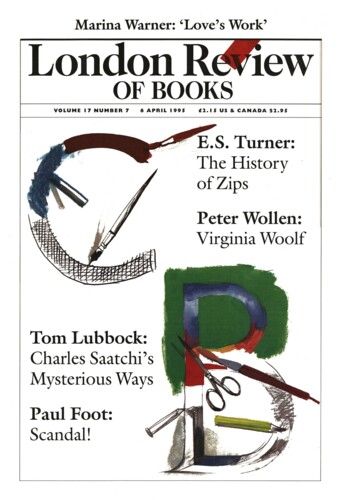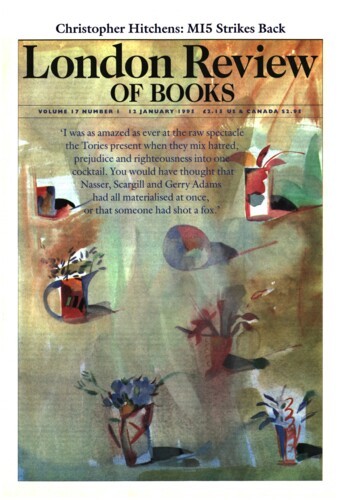What’s It All About?
Tom Lubbock, 6 April 1995
Last autumn, at the award ceremony of the 1994 Turner Prize, Charles Saatchi took the podium at the Tate Gallery. It was a very rare public appearance by Britain’s leading private collector of contemporary art. His words were awaited with interest. Since it opened to the public in 1985, the Saatchi collection in St John’s Wood has become a focus of what’s called the contemporary art debate. With every purchase, names are made and names are called. But Saatchi’s taste, his collecting policy, is eclectic and elusive. So much art, of so many kinds, has passed into and sometimes out of his hands: British, American, German, minimal, Neo-Expressionist, Neo-Geo, new object, photographic, installation, trad fig. Since 1992 he’s been prominently showcasing young British artists, the objects of much attention and controversy lately. Surely some kind of indicative statement might have been expected. And this is what (in part) he said: ‘I’m not sure what today’s young artists are putting in their porridge in the mornings, but it seems to be working. They are producing the most striking new art being made anywhere in the universe. And it seems every museum from Nebraska to Alaska is ringing up trying to organise shows of their work … And if sometimes that work is tasteless and cynical and uncouth it’s because sometimes we all are.’…


